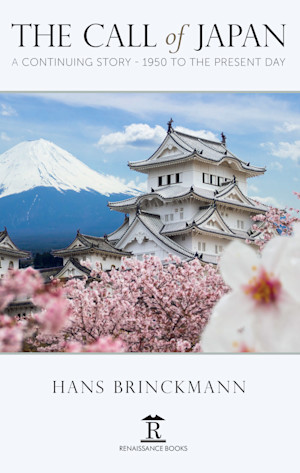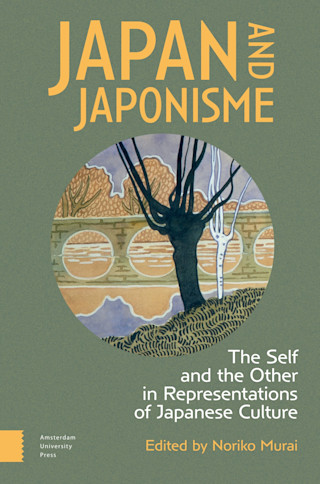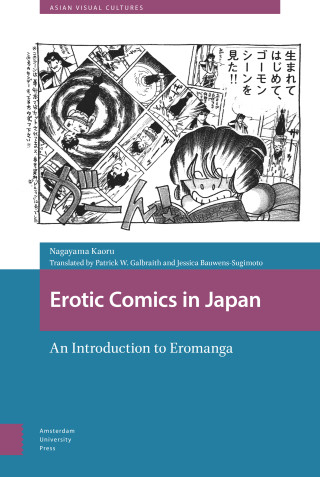
Hans Brinckmann
The Call of Japan
A Continuing Story-1950 to the Present Day
Part personal memoir, part professional flashback, part socio-cultural commentary, The Call of Japan chronicles the author’s experiences during his 40 years of living in Japan, from 1950 to 1974 as a ‘reluctant banker’, and from 2003 to the present as a writer. The Call of Japan comments extensively on the country’s economic, political and cultural realities during the crucial early years of post-war reconstruction as well as during more recent times.
Author
- Title
- The Call of Japan
- Subtitle
- A Continuing Story-1950 to the Present Day
- Author
- Hans Brinckmann
- Price
- € 39,95 excl. VAT
- ISBN
- 9781912961146
- Format
- Hardback
- Number of pages
- 320
- Language
- English
- Publication date
- 25 - 06 - 2020
- Dimensions
- 14 x 22 cm
- Categories
- East Asia and North East Asia
- Sociology and Social History
- Discipline
- Asian Studies
- Also available as
- eBook PDF - € 39,99
Preface
Acknowledgements
Introduction
Part I
The Wooing (1950-1958)
1950
1 Now You Love It…
2 Should We Trust Our First Impressions?
3 The Emperor and the General
4 The Old Tokaido Line to Osaka
5 Of Hot Baths and Fragrant Tea
6 The Halfway-up Bank
7 A Rhythmic Neighbourhood and the Broken White Soldiers
8 The Midnight Whistle
1951
9 Work, Leisure, Home Life
10 The Floating World
11 Through a Paper Screen Darkly
1952
12 Punishment for Going Missing
1953
13 A Well-oiled Little Cogwheel
14 Those Restless Bones
1954
15 Joining the Kantomo
16 Upstairs/Downstairs in the Japanese Economy
17 A Tale of Two Cultures
1955
18 How to Fish and How to Say Goodby
1956
19 Back in Holland…
20 A Fresh Start: Osaka
1957
21 The Teachings of IJsbrand
22 Kyoto and the Magatama Attitude
23 Another Way of Seeing
24 More Kyoto Adventures
1958
25 Osaka Realities
26 Escapes and Escapades
27 Casting the Die
Part II
The Winning (1959-1966)
1959
1 Dark Rumblings Beneath a Pristine New Year
2 An Orderly Wedding – and a Honeymoon of Sorts
3 A Witch in the House
4 Shifting Sands
1960
5 A Narrow Escape
6 Political Turmoil in Tokyo – and an ‘Economic’
Response
1961
7 ‘Getting to Know You…’ or What Went on in the Hot-springs
1962
8 Crisis Management (by the Seat of the Pants)
9 The Foul Smell of Success, and the Need for Faith 1
10 Capital Living
1963
11 The Looming Olympics … and the Overflowing Cup
12 The Seamy Side: Defeating the Yakuza
1964
13 Nothing Changes, Except Everything Else
14 ‘See No Evil…’
1965
15 A Superior Society?
16 Chameleon Man
1966
17 A Thoroughly Ordinary Year
Part III
The Waning (1967-1974)
1967
1 Beyond the Social Whirl
2 Pornographic Chic
3 The Seven Generations Curse: A Case History
4 Falling Scales
1968
5 A Great and Alien Land
6 Kafka’s Ape and a Tower in the Air
1969
7 Amae or How to Have it Both Ways
1970
8 The Growing Conflict
9 Business as Usual
10 A Beautiful Death?
1971
11 ‘Go Placidly Among the Noise and Haste…’
1972
12 Nixon in China and the Tanaka Phenomenon
1973
13 The Art of Evasion
14 Decision Time
15 The Good and the Bad: An Assessment (1973)
16 An Unlikely Story
1974
17 Creeping Doubts
18 Trailing Root
Part IV
The View From Abroad (1974-2002)
1 Preamble
1974
2 Ageing Albion
1975
3 Pessimistic Nippon
1976
4 Back to Banking - in Curaçao…
1977
5 A Business Trip to Japan - and T?fukuji Revisited
1978
6 Japan Again - and Remembering the Departed
1979
7 The Final Months in Curaçao - and the Move to Holland
1981
8 Japan’s Lengthening Reach - and a New Start for Me
1982
9 AMRO’s NewYork Branch Opened - but Japan Still a Factor
1983
10 Walking the Bride Down the Aisle…
1984
11 Pulled Between Two Cities…
1985
12 U.S. Banks Upset by Japan’s Market Aggression
13 Last Rites for a Lady
1986
14 An AMRO Tokyo Conference - and Special “Service” at a Restaurant
15 A Memorial Service in Nagoya
1988
16 Goodbye to Banking - and Japan’s Bubble Economy
1989
17 The End of the Showa Era - and the Fall of the Wall
1990-1998
18 The Restless Years
1999-2003
19 In London - but Focusing on Japan
Part V
Back on Familiar Soil (2003 to the Present)
Preamble
1 The Difference 70 years make
2 Japan’s Fundamental Problems and Vulnerabilities
(a) Lack of Natural Resources
(b) Frequency of Earthquakes and other Calamities
(c) Declining Population
(d) Troubled Relations with its Neighbours
(e) Lack of Decisiveness in Addressing Fundamental Problem
3 My late Wife’s Unique Personality
4
Acknowledgements
Introduction
Part I
The Wooing (1950-1958)
1950
1 Now You Love It…
2 Should We Trust Our First Impressions?
3 The Emperor and the General
4 The Old Tokaido Line to Osaka
5 Of Hot Baths and Fragrant Tea
6 The Halfway-up Bank
7 A Rhythmic Neighbourhood and the Broken White Soldiers
8 The Midnight Whistle
1951
9 Work, Leisure, Home Life
10 The Floating World
11 Through a Paper Screen Darkly
1952
12 Punishment for Going Missing
1953
13 A Well-oiled Little Cogwheel
14 Those Restless Bones
1954
15 Joining the Kantomo
16 Upstairs/Downstairs in the Japanese Economy
17 A Tale of Two Cultures
1955
18 How to Fish and How to Say Goodby
1956
19 Back in Holland…
20 A Fresh Start: Osaka
1957
21 The Teachings of IJsbrand
22 Kyoto and the Magatama Attitude
23 Another Way of Seeing
24 More Kyoto Adventures
1958
25 Osaka Realities
26 Escapes and Escapades
27 Casting the Die
Part II
The Winning (1959-1966)
1959
1 Dark Rumblings Beneath a Pristine New Year
2 An Orderly Wedding – and a Honeymoon of Sorts
3 A Witch in the House
4 Shifting Sands
1960
5 A Narrow Escape
6 Political Turmoil in Tokyo – and an ‘Economic’
Response
1961
7 ‘Getting to Know You…’ or What Went on in the Hot-springs
1962
8 Crisis Management (by the Seat of the Pants)
9 The Foul Smell of Success, and the Need for Faith 1
10 Capital Living
1963
11 The Looming Olympics … and the Overflowing Cup
12 The Seamy Side: Defeating the Yakuza
1964
13 Nothing Changes, Except Everything Else
14 ‘See No Evil…’
1965
15 A Superior Society?
16 Chameleon Man
1966
17 A Thoroughly Ordinary Year
Part III
The Waning (1967-1974)
1967
1 Beyond the Social Whirl
2 Pornographic Chic
3 The Seven Generations Curse: A Case History
4 Falling Scales
1968
5 A Great and Alien Land
6 Kafka’s Ape and a Tower in the Air
1969
7 Amae or How to Have it Both Ways
1970
8 The Growing Conflict
9 Business as Usual
10 A Beautiful Death?
1971
11 ‘Go Placidly Among the Noise and Haste…’
1972
12 Nixon in China and the Tanaka Phenomenon
1973
13 The Art of Evasion
14 Decision Time
15 The Good and the Bad: An Assessment (1973)
16 An Unlikely Story
1974
17 Creeping Doubts
18 Trailing Root
Part IV
The View From Abroad (1974-2002)
1 Preamble
1974
2 Ageing Albion
1975
3 Pessimistic Nippon
1976
4 Back to Banking - in Curaçao…
1977
5 A Business Trip to Japan - and T?fukuji Revisited
1978
6 Japan Again - and Remembering the Departed
1979
7 The Final Months in Curaçao - and the Move to Holland
1981
8 Japan’s Lengthening Reach - and a New Start for Me
1982
9 AMRO’s NewYork Branch Opened - but Japan Still a Factor
1983
10 Walking the Bride Down the Aisle…
1984
11 Pulled Between Two Cities…
1985
12 U.S. Banks Upset by Japan’s Market Aggression
13 Last Rites for a Lady
1986
14 An AMRO Tokyo Conference - and Special “Service” at a Restaurant
15 A Memorial Service in Nagoya
1988
16 Goodbye to Banking - and Japan’s Bubble Economy
1989
17 The End of the Showa Era - and the Fall of the Wall
1990-1998
18 The Restless Years
1999-2003
19 In London - but Focusing on Japan
Part V
Back on Familiar Soil (2003 to the Present)
Preamble
1 The Difference 70 years make
2 Japan’s Fundamental Problems and Vulnerabilities
(a) Lack of Natural Resources
(b) Frequency of Earthquakes and other Calamities
(c) Declining Population
(d) Troubled Relations with its Neighbours
(e) Lack of Decisiveness in Addressing Fundamental Problem
3 My late Wife’s Unique Personality
4




